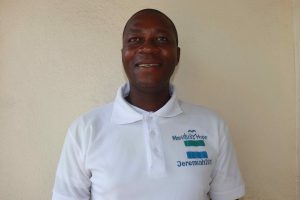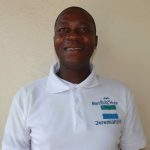August, 2022: Barrick Community Borehole Complete!
We are excited to share that there is now a safe, reliable borehole well at Barrick Community. As a result, the community members no longer rely on unsafe water to meet their daily needs. We also conducted hygiene and sanitation training, which focused on healthy practices such as handwashing and using latrines.
45-year-old Mabinty Kamara, who we spoke with when we first entered Barrick, is so excited for her everyday chores to be easier.
"Accessing water was a difficult thing in the village," Mabinty said.

"The source of fetching water was at the swamp scoop hole. The swamp is far from the village, making it a great challenge for me to walk the far distance," said Mabinty.
She continued, "Honestly, working on the farm and returning to the house to fetch water to prepare food was a huge task. Similarly, the water I used to drink is unclean water and it was a risk to drink it, but I just had to drink it because I had no option."

Mabinty collects water at the new well.
"Therefore, I am very happy because of this new pump. This will greatly ease the work at home by reducing the burden I used to face. I can easily fetch water from the pump even before going to the farm. I will still have time to come from the farm and then fetch water for cooking because the well is located closer to my house. With this, I will be able to do other domestic tasks on time," said Mabinty.
"The water at the pump is clean and I believe that it is very good for drinking. This will help to protect me from getting stomachaches and other serious health issues I used to experience. It is good I have access to water from this new pump at any time because it is just at my doorstep," she said.
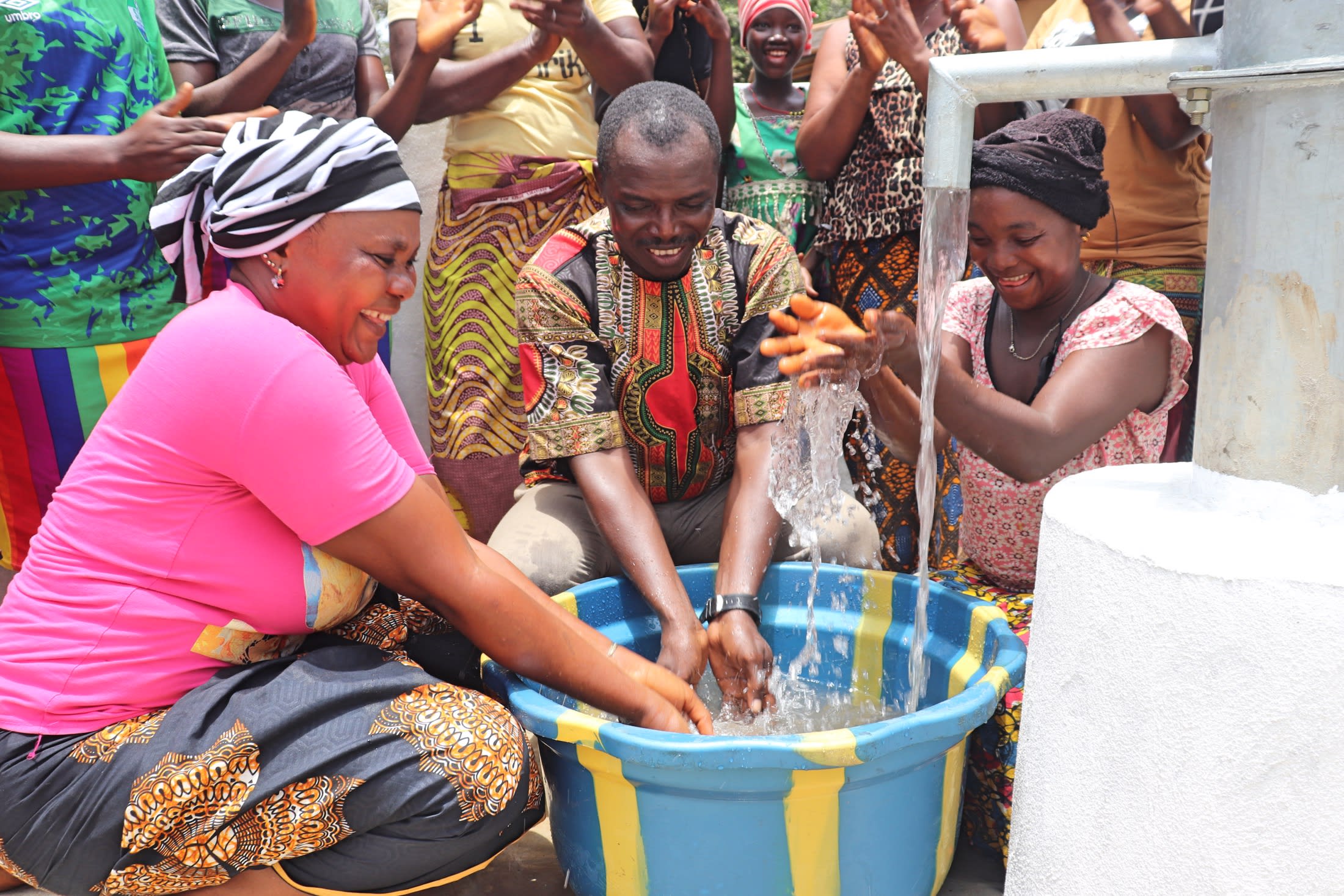
Mabinty celebrates with other community members.
We had also spoken with 14-year-old Fatmata during our first visit to Barrick. Before, she and her mother were worried about finances. Now, she's just excited for her everyday tasks to be easier.
"The new waterpoint will help me to do all my domestic work on time and then prepare for school," Fatmata said.

Fatmata drinks water from the new well.
"This will enable me to be punctual and effective in school. The burden of fetching water late in the evening gave me less time to study. By the time I finished fetching water, I would already be exhausted. At times, when I went to school, I hardly put maximum participation [in] because I [was] very tired. That is why this new waterpoint will lessen the burden I used to face. This is indeed a blessing to me and other students in this community that are suffering from similar situations," shared Fatmata.

Fatmata pours water from a jug at the new well.
"The new waterpoint will help me to do all my household chores on time. I will no longer have any issue with my parents. Initially, my parents [would] punish me for not fetching water on time. Most times, it was not my fault. It was the issue of water constraints that made me not perform the task on time. I believe all these constraints will now be in [the] past because of this new waterpoint," concluded Fatmata.
We held a dedication ceremony to officially hand over the well to the community members. Several local dignitaries attended the ceremony, including representatives from the Port Loko District Council and the Ministry of Water Resources. Each official gave a short speech thanking everyone who contributed to this water project and reminding the staff and students to take good care of it. Then, Mabinty and Fatmata made statements on their community's behalf. The ceremony concluded with celebration, singing, and dancing.

New Well
The drill team arrived the day before beginning work. They set up camp and unpacked all their tools and supplies to prepare for drilling the next day. The community provided space for the team to store their belongings and meals for the duration of their stay. The following day, work began.
Our team dug two pits next to the drill rig, one for the drill’s water supply and another for what the drill pulls out of the borehole. In some cases, we order a private supplier to deliver the water for drilling since water access is already challenging.

Day one of drilling began as the team mixed water with bentonite, an absorbent clay, in the two dug pits. Next, the team fixed a four-inch carbide-tipped bit to the five-foot-long drill stem. They started the mud pump to supply water to the drill rig so that drilling could begin!
After putting each five-foot length of drill stem into the hole, the team took material samples. We labeled the bags to review them later and determine the aquifer locations.
On the second day of drilling, the team expanded the hole and cleared it of mud. After reaching a total depth of 25 meters, the team forcefully pumped clean water into the well to remove any dirt and debris from the drilling process. We then protected the screened pipe by adding a filter pack. The team hoisted the temporary drilling casing to fortify the pipes with cement.

Next, we bailed the well by hand for three days before conducting a yield test to verify the water quantity. This well has a static water level of 14 meters. With these excellent results, we installed a stainless steel pump. Water quality test results showed that this was clean water fit for drinking!

New Knowledge
Before conducting any hygiene training, we called and visited the local water user committee to understand the community’s challenges and lack of sanitation facilities. We shared the findings from our discussions with the committee members to help them make the necessary adjustments before the training began. For example, we identified households without handwashing stations or ones that may need to repair their latrines. With this information, community members worked together to improve hygiene and sanitation at home.
After this preparatory period, we scheduled a time when members from each household using the water point could attend a three-day hygiene and sanitation training. We then dispatched our teams to the agreed-upon location to hold the meeting.

Training topics covered included handwashing and tippy taps, good and bad hygiene habits, disease transmission and prevention, COVID-19, worms and parasites, proper dental hygiene, proper care of the well's pump, keeping the water clean, the cost recovery system, the importance of using dish racks and clotheslines, the importance of toilets, keeping latrines clean, balanced diets, the diarrhea doll, and HIV and AIDS.
One of the most notable topics in Barrick was when the training facilitators explained common poor hygiene habits and why they're harmful. One woman named Kadiatu stood up and said she had let her children practice open defecation (when someone relieves themselves outside of a latrine) without knowing it would cause illness in her family and community. She did it because she had seen her mother and grandmother doing the same thing, thinking it was right. Now, she knows that in order to prevent the spread of disease, she must ensure her children use their family's latrine.

Community members work together to display disease transmission posters in order of occurrence.
During our session on disease transmission, where we discuss how illnesses transfer from one person to another, one man said to his neighbor, "what we see from the picture is what is killing us slowly."

21-year-old trader Mafereh Mansaray came away from the training with more knowledge on how to protect herself and others from disease.
"The training was valuable to me because now I can understand the importance of hand washing," Mafereh said.
"Before this time, I saw handwashing as a waste of time. There are several occasions in which I have failed to wash my hands before eating, and this has led me to become sick. But now, I must practice the knowledge I have received on handwashing every day. I will wash my hands before eating [and] after using the toilet, and practice the act of cutting my fingernails. This will prevent me from the terrible sicknesses I suffered [from] before. I know they will never reoccur again if I wash my hands with clean water and soap."
Conclusion
This project required a substantial collaboration between our staff, our in-country teams, and the community members themselves. When an issue arises concerning the well, community members are equipped with the necessary skills to rectify the problem and ensure the water point works appropriately. However, if the issue is beyond their capabilities, they can contact their local field officers to assist them.
Also, we will continue to offer them unmatchable support as a part of our monitoring and maintenance program. We walk with each community, problem-solving together when they face challenges with functionality, seasonality, or water quality. Together, all these components help us strive for enduring access to reliable, clean, and safe water for this community.
With your contribution, one more piece has been added to a large puzzle of water projects. In our target areas, we’re working toward complete coverage of reliable, maintained water sources within a 30-minute round trip for each community, household, school, and health center. With this in mind, search through our upcoming projects to see which community you can help next!
Thank you for making all of this possible!

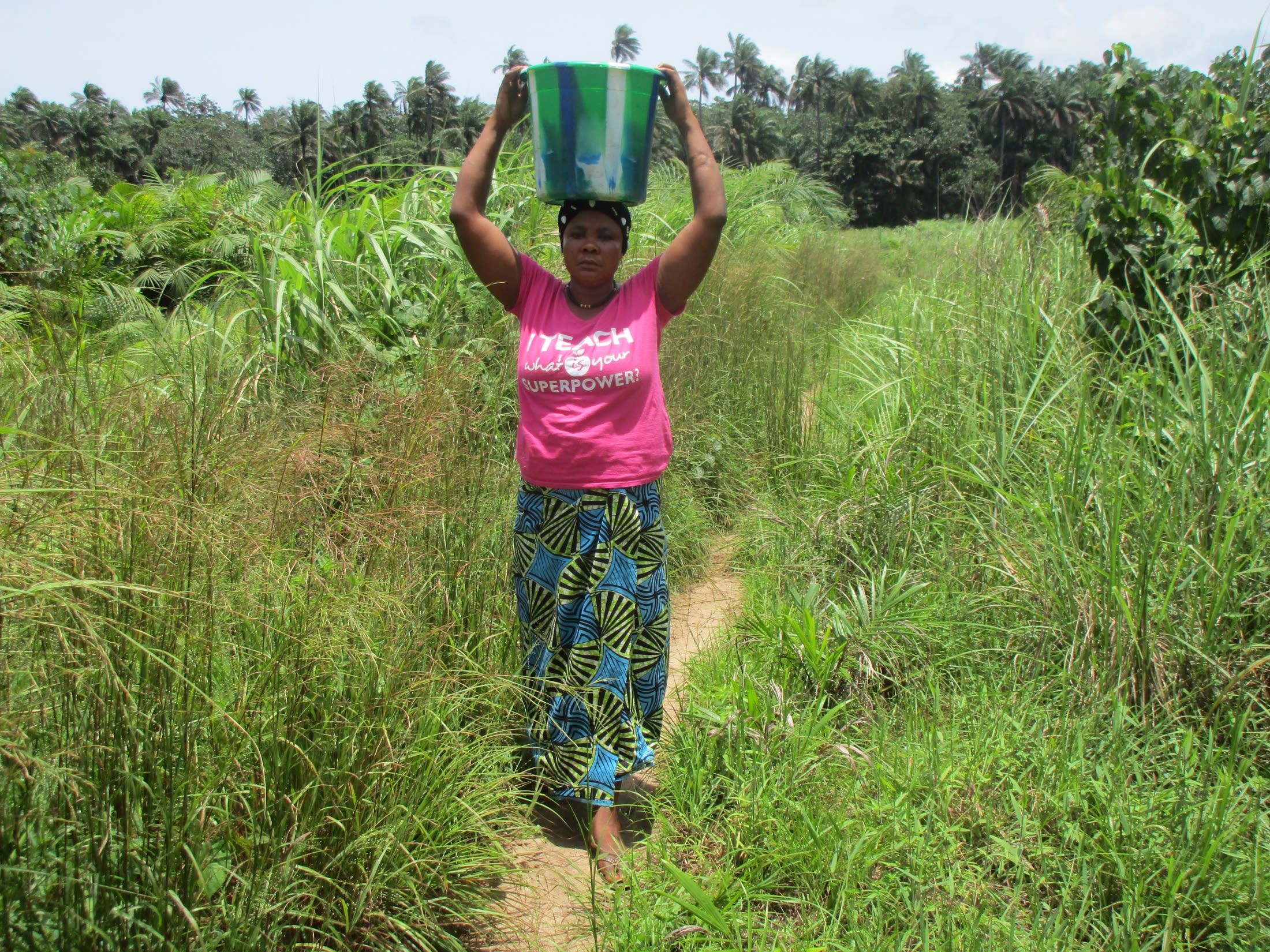
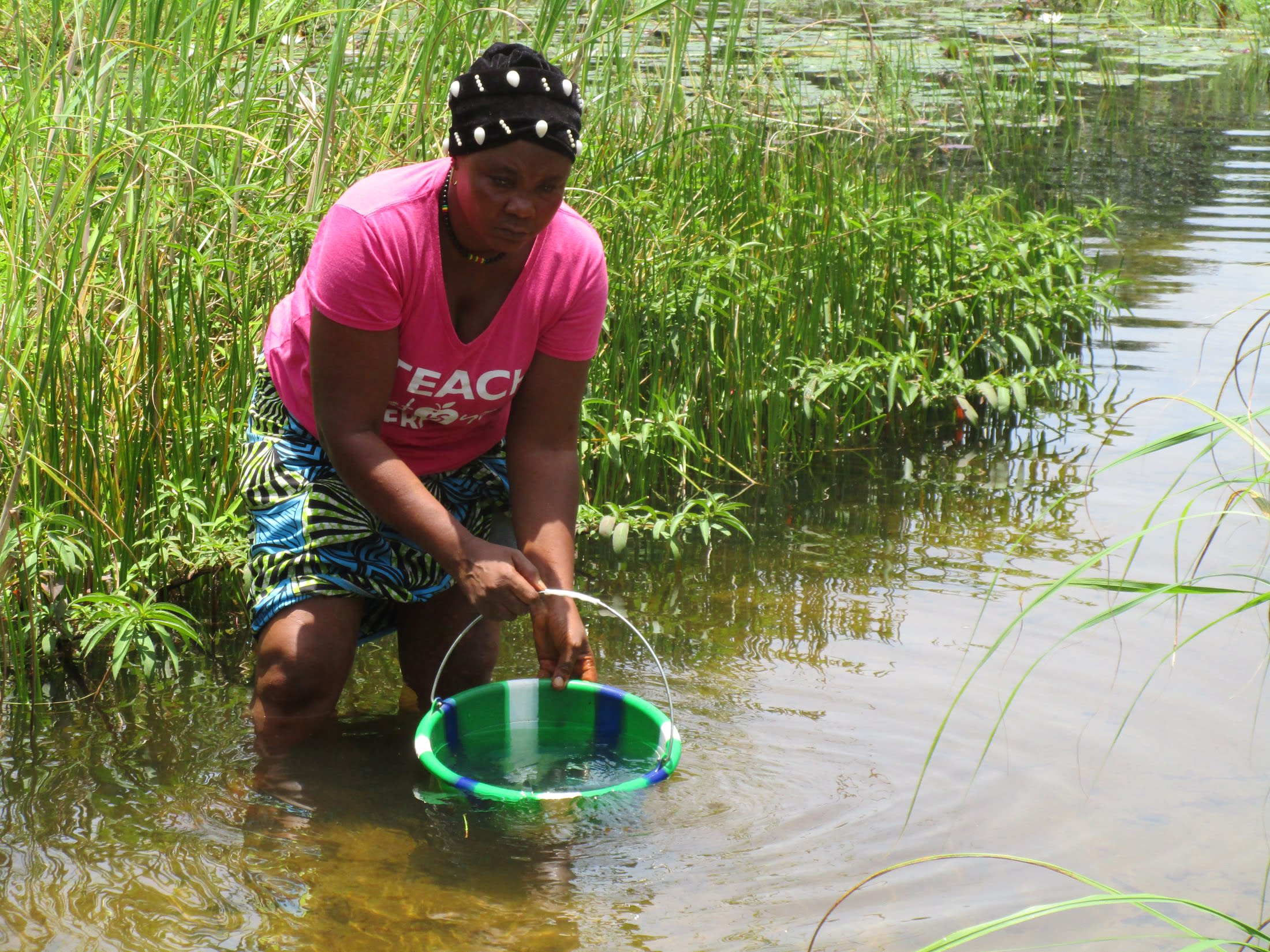
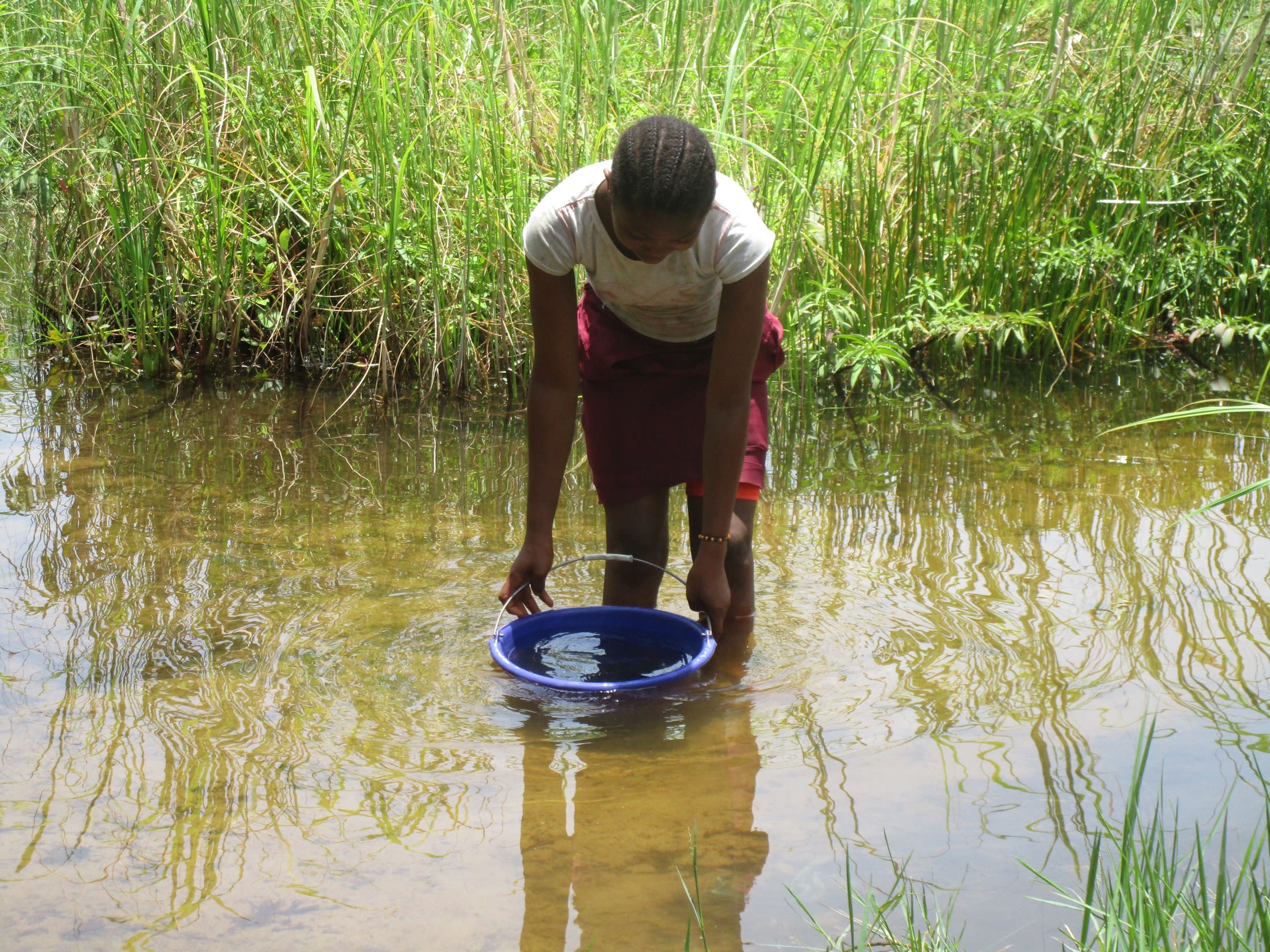

 Borehole Well and Hand Pump
Borehole Well and Hand Pump
 Rehabilitation Project
Rehabilitation Project








